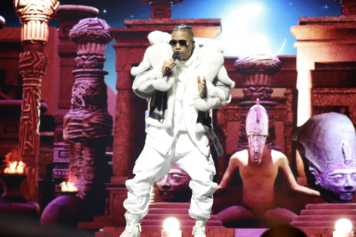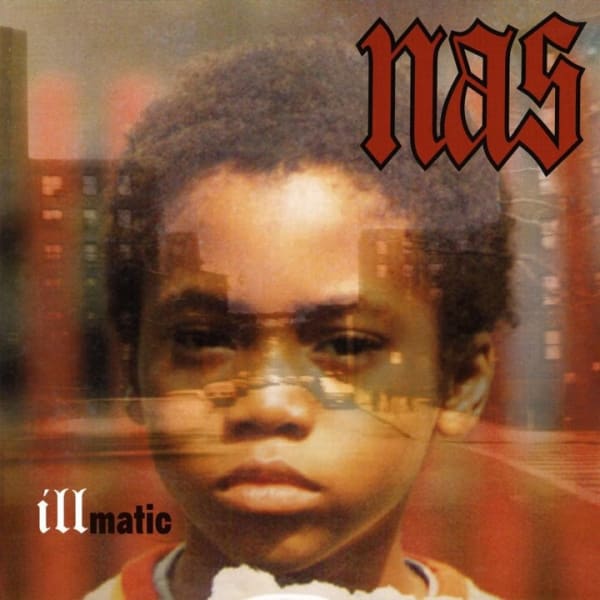What does it take to be a legend like Nas? The question remains as unanswered today as it was when it was initially uttered by Kanye West on "Classic" in 2007. What does it take, indeed. Birthed from the infamous Queensbridge Houses, Nasir bin Ola Dara Jones is the quintessential MC of the past 25 years and is an American music icon-much to conservative America's consternation. His road to superstardom was paved through the era of black consciousness. He thrived during the era of gangsta rap. He is also one of the only artists I know of who released a triple platinum selling record in "I Am" that was lampooned by critics as a failure. I will repeat that for the sake of marinating…a project that moved over three million units was considered a critical failure. If only everyone could fail so magnificently. Jones sits in a gaudy talent pool of artistic opulence with eight consecutive platinum selling albums from the start of his career.
Fearless, thought-provoking and counter cultural in his artistic leanings, Nasir once stood as the Calvinist mule upon which the educated and elitist black bourgeois heaped its disdain for all things hip-hop. If you had a problem with marijuana in songs, blame Nas. Sexually explicit lyrics, blame Nas. Problems with the glorification of gun violence and misogyny in rap music as a whole? The "N" word? I think that was his fault as well at one time or another. Nas was the guy whose image America would wag an accusing finger of faux morality at more often than not. Despite efforts to destroy his career Nas has been the closest thing Hip-Hop has had to a living content-producing institution outside of Wu Tang Clan and Jay-Z. Yes, dear rap nerd, I am fully aware of Jay-Z's current standing at the top of the money pile, but Nas was rocking the universe before Jigga's accession back in 1994 and has sold over 25 million records worldwide. He set the bar of rap excellence so high with his seminal release Illmatic that all other hot selling freshman rap releases are compared to his. Each album he released seemed to speak directly to Generation X, the generation of which he and I are members. He went from a rebellious child sitting on stoops and rolling blunts, to a businessman smoking Cuban stogies in hotels with heated marble floors in the blink of an eye. And, in true Sinatra fashion, he did it his way.
Today Nas sits amid a limited pantheon of living rap legends who can still afford to buy the sneakers and cars they once rapped about decades ago. In the late 90s, Nasir appeared to be wallowing in outdated material and rehashed beats. Older fans were looking for him to release fresh-sounding material that was considered on par with Illmatic-the album that all of his subsequent releases would be compared to. Meanwhile, younger fans couldn't quite come to grips with the fact that the "Ochie Wally" man was old enough to be their father. But Nas had been written off before and took questions of his relevance in stride.
An inevitable lyrical showdown with Jay-Z came to fruition in 2001 as Nas released "Ether", arguably one of the top 5 greatest diss records of all time, in response to Jay-Z's "The Take Over." That heated contest, and the manner in which he sealed the deal, may have been responsible for his resurgence among hip-hop fans of all ages. The subsequent releases of God Son, Hip Hop Is Dead, and the recent Life Is Good album were further proof of the rapper's ability to remain relevant across generations. He straddled the line between the streets and academia through most of his selections. While many of his peers would rather deal with album content whose subjects bordered more on fiction than reality, Nas would weave large portions of his own life's struggles into his artistic tapestry. He not only spoke openly about his failed relationship with the mother of his first child, but also spoke about ex-wife Kelis, almost going broke, how the streets nearly cost him his career, and the life choices he had to make in disassociating himself from the hood he so loved while still trying to establish his career. What's realer than that?
These days Nas, perhaps taking a page from one-time rival Shawn Carter, seems to have finally decided to seriously invest in life outside of the sound booth. A recent marketing campaign for Hennessey did more for his commercial viability than any other he'd been involved with to date. Despite having entered into a deal to promote Fila athletic wear in 2008 and recently opening the 12AM Run athletic footwear store in Las Vegas, Nasir Jones has been on the artistic low lately. This relative quiet is likely the calm before the storm. His last album Life Is Good was released in 2012. And while there's buzz and speculation as to who he will team with on his upcoming 11th studio album, there is no word yet on a release date. Many of Nas' contemporaries from the early 90s had remained culturally significant by make a successful transition to films, Will Smith and Queen Latifah are primary among them. Though he starred in the cult street classic "Belly," Nas has only appeared in bit roles for most of his acting career. And he continues building on his portfolio with an appearance in the upcoming release Black Nativity. Starring Jennifer Hudson, Forest Whitaker, Angela Basset, and Tyrese, Black Nativity is slated to open on November 26th.



